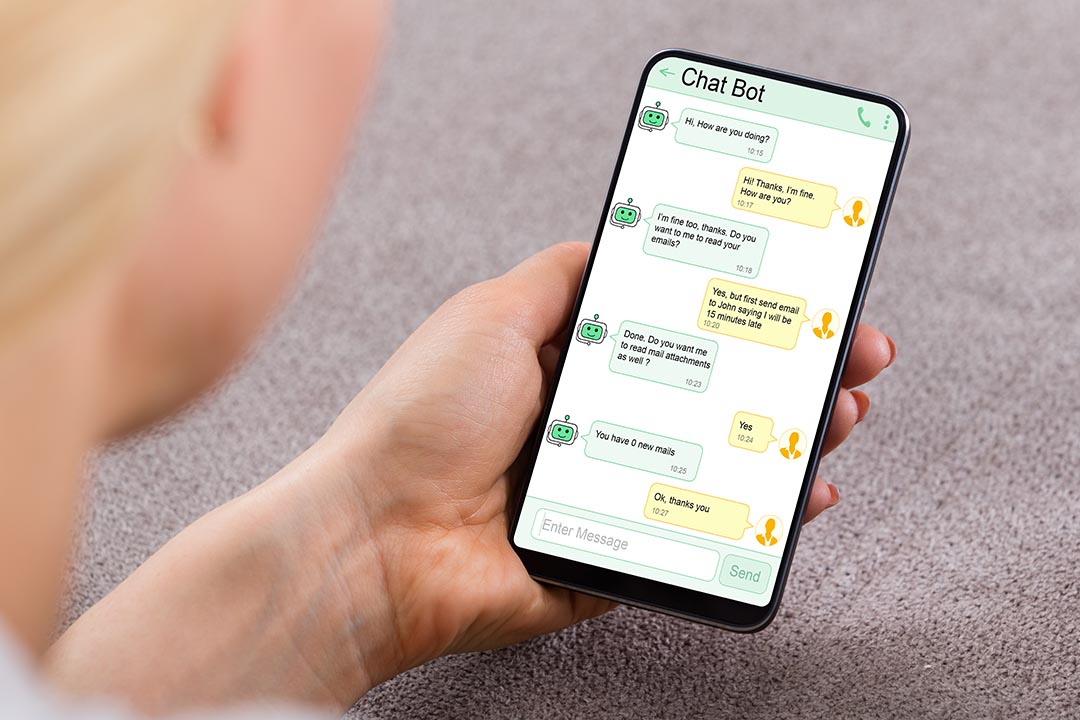There’s a technological transformation happening right now that some say will be on par with the arrival of the computer age or the advent of the Internet: It’s the rise of artificial intelligence (AI) tools like ChatGPT that ordinary people can use to automate a vast variety of tasks.
AI is already making many business functions more efficient, from customer service to shipping and handling. Nonprofit organizations can also leverage new AI tools to maximize their impact, and do more with less. Artificial intelligence is enabling nonprofits to enhance their marketing efforts, optimize social media content, streamline fundraising initiatives, and forge deeper connections with donors and volunteers.
In this blog post, we will explore specific examples and provide actionable tips for nonprofits looking to harness the potential of AI to amplify their mission.
Create new marketing channels such as chatbots
AI-powered marketing tools can help nonprofits deliver more tailored and, hence, more impactful messages to their target audiences. For instance, nonprofits can employ AI-powered chatbots to engage with website visitors, providing real-time assistance and nurturing potential supporters. This automated interaction can not only provide immediate responses but also collect valuable data to improve future campaigns. Gen Z is also very comfortable interacting with chatbots, so this is one way to engage with the next generation of donors and volunteers.
On average, having a chatbot service on your website will cost several hundred dollars per month. But some companies such as Chatbot.com offer free or heavily discounted rates for qualified nonprofits.
More to learn: 8 Ways Chatbots Help Nonprofits Expand Outreach and Increase Donor Engagement
Optimize social media presence
Social media platforms are invaluable tools for nonprofits to amplify their message and reach wider audiences. AI can enhance social media strategies by automating content scheduling, analyzing engagement metrics, and suggesting relevant hashtags and keywords. AI-powered tools can also monitor social media conversations and sentiment analysis, allowing nonprofits to identify trends, engage in timely discussions, and address concerns promptly. One easy tactic is to prompt ChatGPT or other AI writing tool to brainstorm ideas for Instagram or Facebook captions, or tweets for Twitter. This kind of idea generation is a great way to get started with AI-powered writing.
More to learn: 10 AI Tools to Streamline Your Social Media Strategy
Streamline fundraising initiatives
Fundraising is the lifeblood of nonprofit organizations, and AI can significantly streamline the process. Nonprofits can leverage AI tools to analyze donor data, segmenting supporters based on their giving patterns, interests, and demographics. This enables organizations to tailor personalized fundraising appeals and optimize their campaigns for maximum impact. As mentioned earlier, AI-powered chatbots can be integrated into websites and social media platforms, simplifying the donation process and providing immediate responses to donor inquiries. AI tools can also predict donor behavior, helping nonprofits identify potential major donors and target them strategically.
Learn more: 12 ways to Use ChatGPT and Other AI Tools for Fundraising
Enhanced donor and volunteer engagement
Building strong relationships with donors and volunteers is crucial for nonprofits. AI can assist in this aspect by personalizing communication and engagement. For instance, nonprofits can use AI tools to send automated, personalized emails based on donor preferences, milestones, and past interactions. AI-powered recommendation systems can suggest volunteer opportunities and events that align with individual interests and skills, enhancing engagement and fostering a sense of belonging within the organization. Nonprofits can also leverage AI chatbots to offer real-time support, answering queries and guiding volunteers through onboarding processes.
Learn more: Creative Ways You Can Use AI for Volunteer Management Tasks
Data-driven decision making
AI can empower nonprofits by allowing them to make faster, smarter decisions backed by data. By analyzing enormous amounts of information, AI tools can identify trends, predict outcomes, and provide actionable recommendations. Nonprofits can leverage AI to understand the impact of their programs, measure key performance indicators, and assess the effectiveness of their marketing and fundraising efforts. These insights can guide strategic planning, improve resource allocation, and drive overall organizational growth.
For example, most nonprofits use an email service like Mailchimp to manage their mailing lists and newsletters. Mailchimp offers a variety of built-in, AI-powered features to help organizations send better email campaigns that are more relevant to their audience, including a content generator for email marketing.
Learn more: How Team Rubicon uses predictive data to better help communities during crisis
Here are some tips for nonprofits that want to get started with AI:
- Start small: Begin by identifying specific areas where AI can bring the most value to your organization, such as social media management or donor segmentation.
- Collaborate with experts: Seek partnerships with AI technology providers or consultants who can guide you through the implementation process and help you make the most of AI tools.
- Data quality matters: Ensure data accuracy and integrity to obtain meaningful insights. Regularly clean and update your databases to maintain high-quality data.
- Test and iterate: Experiment with different AI tools and strategies to find what works best for your organization. Monitor results, make adjustments, and continually improve your approach.
- Prioritize ethics and privacy: Maintain transparency and respect donor and volunteer privacy when leveraging AI tools. Adhere to data protection regulations and consider the ethical implications of AI implementation.
By embracing AI technologies, nonprofits can work smarter, make better data-driven decisions, and enhance their overall effectiveness in achieving their missions. Nonprofits can unlock new opportunities to amplify their impact, strengthen relationships with stakeholders, and drive positive change.
But remember, AI is not a substitute for human connection, empathy, and passion. It is a powerful tool that, when used in harmony with these attributes, can propel nonprofits to create greater impact with fewer resources. Your mission, vision and values still matter—maybe more so in an AI-driven world.








